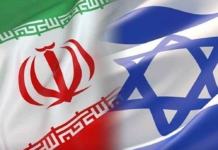The Muslim world is passing through crises of sorts, and the most glaring relates to the leadership of the future. Looking around at world leaders in the political, financial, and social fields, one realizes that none are from the Muslim world. This situation could be partially attributed to Muslim culture and tradition that dictates that the elderly know the best. However, the fact remains that it is not always the case. Meritocracy suggests one who is intelligent, regardless of age and gender, should be leading the nation. One with innovative and progressive views should lead the country. Reality is, there is a significant vacuum in the Muslim world in this domain. Take the example of Pakistan and the challenges it faces.
Pakistan is one of the few hopes of opportunity and progress in the Muslim world. But till date, the country is facing the leadership crisis. When former prime minister Imran Khan appeared on the horizon; he was not just the hope for Pakistanis but also for the Muslim world. He was not from a traditional political setup. He was an innovative leader and came to power with new slogans and promises. He represented the symbol of relatability of some sort for Pakistanis in the country and abroad. But instead of focusing on changing and improving the country’s future, all his energy was more focused on punishing who he thought were the past culprits. But, even looking at his narratives since he came to power, he picked the wrong fight.
Instead of fixing the country’s institutions; which he promised, he opted to wrestle with the past and focused too much attention on the misconduct of the previous regimes. No one is challenging his intentions, but perhaps his priorities were not right. Instead of wasting all his energy, resources, and time on ‘corruption’ of previous regimes, Khan should have chartered more cohesive processes for the future. He wasted an opportunity. Hence, Pakistan is again now at a crossroads of not just another spell of political crisis but also diplomatic and economic crisis. This is very unfortunate for the second largest Muslim country and the only nuclear-powered Muslim country globally. The country is leaderless again.
The vacuum is widening every passing day, and people are angry with the entire situation. Nothing has changed. The government has returned to the past only because no one has worked for the future. Today, thousands of people are on the streets in Pakistan. It would not be reasonable to say that people protesting on the streets are doing it only for the love of Imran Khan. His expulsion may have brought them to the streets. He may be a poster boy, but the anger is against the ‘corrupt’ political system. For many political gurus, the rise and fall of Imran Khan is very similar to Donald Trump, the former American president. Trump became the head of the state because he hit a raw nerve. He may not have been a good leader, but he was able to give something different to the Americans. He was anti-thesis and so was Imran Khan.
Today, what is happening in Pakistan is an isolated example. Pakistan is not alone in this struggle. It is a dilemma of the entire Muslim world, which seems obsessed with its past. It either over-romanticizes past glories or continues witch-hunting of the previous wrongdoings. There is no vision for the future and no progressive approach. There is no leadership in the Muslim world that talks about the future of its young population, who are only frustrated. According to Pew Research; by 2030, the Muslim population will reach up to 2.2 billion, becoming more than 26 percent of the world’s total projected population. More than 60 percent population in the Muslim countries is under the age of 30. And most importantly, Pakistan is expected to surpass Indonesia and would become the single largest Muslim population in the coming eight years. These numbers are exciting and scary too.
Exciting because, with such a young population and by being a quarter of the world population, the opportunities and progress could be unlimited. But just imagine if these young Muslims don’t have the progressive and futuristic leadership, what kind of frustrated society we are creating for our future. Without the right leadership, population that could be an asset may turn into a horrifying liability in a leaderless society. One could see the glimpses on the streets of Pakistan today. This South Asian country needs a fresh beginning – a new partition from the past. A brand-new start from point zero. Instead of trying to fix something that cannot be fixed, why not just press the reset button. The people of Pakistan deserve a lot more than what they have received since its creation. That applies to the whole Muslim Ummah of the present age.






